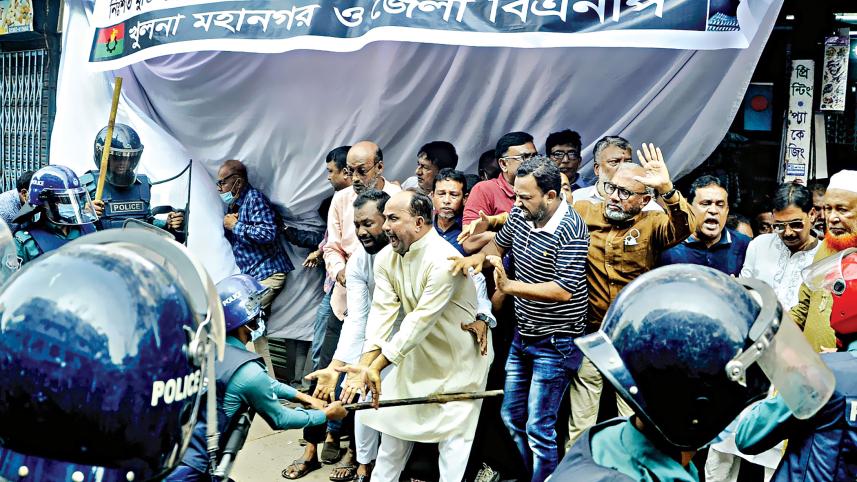Preventing party rallies is undemocratic

We notice with a deep sense of consternation the rapid constriction of political space of the opposition, which has by now become a constant phenomenon, principally for the major opposition BNP, but by and large for all those that venture to express their disagreement with the policy of the government. Once again, the BNP's plan to organise countrywide demonstrations and rallies to ventilate their frustration and to call on the government to allow the party chief to go abroad for treatment, was thwarted in many places in the country.
But such an attitude from the government is not new. It is the manifestation of the government policy to keep the BNP off the streets since the ruling party assumed the reins of the administration in 2009. Since then, the opposition has been forced to remain indoors and any attempt to take to the streets has been blatantly foiled by the law enforcing agencies, on most occasions. This time too, as reported in this paper, most of the planned rallies were scuttled or prevented from being held to begin with. Even rallies in front of BNP's party offices did not meet with police approval. The common refrain of the police is that the BNP was blocking the road or they had attacked the police first.
We agree that no political programme should cause public inconvenience, but BNP is not the first or only party to do so. Often, we find important intersections of the city blocked by protesters for hours on end with the police doing little to disperse the crowd and clear the area for resumption of traffic movement. We believe that political activity has not been banned in the country. In that case, holding of political protests, demonstrations, rallies—peacefully and within the bounds of the law—is a constitutional and fundamental right which, when curtailed arbitrarily or selectively, diminishes the image of not only the party in power but also of the country. The result is that the country's democratic credentials are called into question by international watchdogs.
We regret to say that the ruling party's image as a democratic party has been taking a beating over the last several years, primarily because of its inability to countenance dissent and its iron-fisted treatment of the opposition. It pains us when the country is classified as having an "authoritarian regime," as has been done by the International Institute for Democracy and Electoral Assistance, a Sweden-based intergovernmental organisation, in its recent report.
To permit or not to permit Khaleda Zia to proceed abroad for treatment is entirely for the government to decide. But to prevent her party's men and women from expressing their feelings politically is uncalled for.



 For all latest news, follow The Daily Star's Google News channel.
For all latest news, follow The Daily Star's Google News channel.
Comments